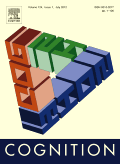
Neuropsychological Trends
Scope & Guideline
Transforming Understanding through Multidisciplinary Dialogue
Introduction
Aims and Scopes
- Neuroscience and Cognitive Psychology Integration:
The journal focuses on how neuroscience informs our understanding of cognitive processes, including decision-making, memory, and emotional responses. This includes studies utilizing neuroimaging and electrophysiological techniques. - Impact of Mindfulness and Meditation:
A significant area of research involves the effects of mindfulness practices and meditation on cognitive and emotional functioning, particularly in clinical and performance contexts. - Decision-Making Processes:
Research often centers around the cognitive mechanisms underlying decision-making, including the roles of executive functions, cognitive biases, and environmental influences. - Clinical Applications and Interventions:
The journal publishes studies that investigate neuropsychological assessments and interventions aimed at improving cognitive and emotional health in various populations, including children and athletes. - Social Neuroscience:
Explorations of how social interactions and contexts influence cognitive processes and neuropsychological outcomes, particularly in the realms of creativity and collaboration.
Trending and Emerging
- Mindfulness and Neurofeedback:
An increasing interest in mindfulness-based interventions and neurofeedback techniques is evident, as these practices demonstrate significant benefits for cognitive enhancement and emotional regulation. - Neuroscience of Decision-Making:
A growing body of research is focusing on the neurocognitive aspects of decision-making, particularly regarding executive functions and how they relate to behavioral outcomes in various contexts. - Impact of Technology on Cognitive Processes:
Studies examining the effects of technology use, such as smartphones and remote learning, on cognitive and emotional health are trending, reflecting societal shifts and concerns. - Sports Neuroscience:
There is a rising trend in research connecting neuroscience with sports performance, particularly in understanding concussion impacts and cognitive training in athletes. - Ecopsychology and Urbanization:
Emerging themes include the neuropsychological effects of ecotherapy and the relationship between urban environments and mental health, highlighting a cross-disciplinary approach to psychological well-being.
Declining or Waning
- Traditional Neuropsychological Assessments:
There is a noticeable decline in studies focused solely on traditional neuropsychological assessment methods without integrating newer methodologies or interdisciplinary approaches. - Generalized Studies on Mental Health:
Research that broadly addresses mental health without specific neuropsychological or neuroscientific frameworks is appearing less frequently, suggesting a shift towards more specialized and targeted investigations. - Basic Neuroscience without Clinical Application:
Papers that present basic neuroscience findings without a clear application to clinical practice or real-world implications are becoming less common, indicating a preference for research with direct relevance to cognitive and behavioral outcomes.
Similar Journals

BEHAVIORAL AND BRAIN SCIENCES
Advancing Insights in Neuroscience and PsychologyBehavioral and Brain Sciences, published by Cambridge University Press, is a pivotal journal focusing on the interdisciplinary fields of Behavioral Neuroscience, Neuropsychology, and Physiological Psychology. With a history dating back to 1978 and ongoing through 2024, this journal serves as a vital platform for researchers, professionals, and students seeking to advance their understanding of brain-behavior relationships. Despite its current Q3 classification in various categories as of 2023, Behavioral and Brain Sciences is recognized for its insightful articles that foster discussions among professionals in the field. While it operates on a subscription model, the journal ensures broad access through individual and institutional subscriptions. Researchers will find this journal not only valuable for publishing their work but also for accessing a diverse range of scholarly articles that address contemporary issues in neuroscience and psychology, thereby enhancing the academic discourse within these evolving fields.

PSYCHOPHYSIOLOGY
Pioneering Discoveries in Psychophysiology.PSYCHOPHYSIOLOGY, published by WILEY, stands as a leading journal in the intersection of psychology and physiology, contributing significantly to our understanding of the brain and body connection since its inception in 1964. With an impressive scope covering areas such as biological psychiatry, cognitive neuroscience, and neuropsychology among others, the journal has earned multiple Q1 rankings in these critical domains as of 2023, reflecting its high impact in the field. The journal ranks particularly well in categories such as Experimental and Cognitive Psychology and neurology, indicating its status as a pivotal resource for professionals and researchers committed to advancing knowledge in psychophysiological studies. Furthermore, with an e-ISSN of 1469-8986, PSYCHOPHYSIOLOGY is accessible to a global audience, although it is not part of the Open Access movement, ensuring that its rigorous research remains a trusted source for academic excellence. By engaging with this journal, readers can expect to discover pioneering research and significant findings that push the boundaries of current understanding, making it an essential publication for those invested in the advancements of psychological and physiological sciences.

Mind Brain and Education
Shaping the Future of Education with Scientific RigorMind, Brain, and Education is a pioneering journal published by WILEY, focusing on the intersection of cognitive neuroscience, developmental psychology, and educational practices. With an ISSN of 1751-2271 and E-ISSN 1751-228X, this esteemed publication offers a platform for researchers and educators to disseminate innovative findings that bridge theory and practice in learning environments. Spanning from 2008 to 2024, the journal has established a reputation as a vital resource in the academic community, recognized in 2023 as Q2 in Developmental and Educational Psychology and Education, and Q3 in Cognitive Neuroscience and Experimental and Cognitive Psychology. With Scopus ranks demonstrating its impact, especially in Education and Psychology fields, Mind, Brain, and Education invites submissions that advance knowledge and application of educational strategies informed by brain science. Researchers, professionals, and students will find critical insights and collaborative opportunities to enhance educational outcomes and cognitive development in learners.

BRAIN AND COGNITION
Connecting Neuroscience with Psychological InsightsBRAIN AND COGNITION, published by Academic Press Inc Elsevier Science, stands as a vital resource for researchers and practitioners in the realms of cognitive neuroscience and psychology. Established in 1982, the journal has continuously evolved, showcasing cutting-edge research that bridges the understanding of brain functions and cognitive processes up to 2024. With an impressive impact factor reflecting its commitment to high-quality scholarship, the journal currently holds a prestigious Q1 ranking in Arts and Humanities (miscellaneous) and notable Q2 rankings in various psychology fields, including Cognitive Neuroscience, Developmental and Educational Psychology, Experimental and Cognitive Psychology, and Neuropsychology. This multidisciplinary journal cultivates a rich academic dialogue, offering valuable insights to professionals, researchers, and students alike. Although it does not offer open access, its robust indexing in Scopus and consistent contribution to important discussions in cognitive research define its critical role in advancing knowledge and innovation in the cognitive sciences.

COGNITIVE AFFECTIVE & BEHAVIORAL NEUROSCIENCE
Exploring the Neural Ties: Bridging Cognition, Emotion, and ActionCOGNITIVE AFFECTIVE & BEHAVIORAL NEUROSCIENCE (ISSN: 1530-7026, E-ISSN: 1531-135X) is an esteemed journal published by SPRINGER that aims to advance the understanding of the interplay between cognitive processes, affective states, and behavioral responses in the field of neuroscience. Established in 2001, the journal provides a rigorous platform for disseminating high-quality research, with a significant focus on both Behavioral Neuroscience and Cognitive Neuroscience. Classified in Q1 and Q2 quartiles for 2023, it ranks highly within its categories, holding positions of #37 out of 88 and #46 out of 115 respectively in the Scopus listings. Although not an open-access publication, readers can access a wealth of valuable insights and innovative findings that enrich the scientific community's understanding of brain function and behavior. The journal's emphasis on interdisciplinary research contributes to its esteemed reputation, making it a vital resource for students, researchers, and professionals striving to explore the complex nature of the human mind and behavior.

NEUROSCIENCE AND BIOBEHAVIORAL REVIEWS
Unlocking the secrets of behavior through neuroscience.NEUROSCIENCE AND BIOBEHAVIORAL REVIEWS, published by PERGAMON-ELSEVIER SCIENCE LTD in the United Kingdom, serves as a leading interdisciplinary platform for the dissemination of pioneering research and reviews in the realms of Neuroscience, Behavioral Neuroscience, Cognitive Neuroscience, and Neuropsychology. With an impressive impact factor reflected in its Q1 ranking across multiple categories for 2023, the journal is recognized for its rigorous peer-reviewed content that influences the advancement of scientific knowledge in behavioral and cognitive research. An essential resource for researchers, professionals, and students alike, the journal emphasizes the exploration of complex neural mechanisms that underlie behavior and cognitive processes. Despite being a subscription-based publication, the journal's extensive archive from 1978 to 2024 fosters a wealth of knowledge designed to inspire and facilitate future advancements within the field.

Neuropsychologia
Advancing Insights into Behavioral and Cognitive ProcessesNeuropsychologia, published by PERGAMON-ELSEVIER SCIENCE LTD, is a premier journal that delves into the intersections of psychology and neuroscience, specifically focusing on behavioral and cognitive processes. Since its inception in 1963, this esteemed journal has been a vital platform for researchers, professionals, and students, showcasing innovative studies and advancements in the fields of Behavioral Neuroscience, Cognitive Neuroscience, and Experimental Psychology. With a commendable impact factor, placing it in the Q2 category across multiple disciplines, Neuropsychologia is recognized for its contribution to the scientific community, ranking among the top journals in both Experimental and Cognitive Psychology and Neuroscience. The journal's commitment to excellence is evident in its rigorous peer-review process and its mission to disseminate cutting-edge research, making it an invaluable resource for those seeking to expand their knowledge and insights in neuropsychology. For further reading, the journal is accessible in both print and digital formats, ensuring that researchers can easily engage with the latest findings and theoretical advancements in this dynamic field.

NEUROPSYCHOLOGY REVIEW
Exploring the Intersection of Mind and BrainNEUROPSYCHOLOGY REVIEW is a prestigious journal published by Springer, dedicated to the exploration of cognitive processes and behavior through neurological and psychological perspectives. With its ISSN 1040-7308 and E-ISSN 1573-6660, this journal holds a distinguished position in Q1 of the Neuropsychology and Physiological Psychology category, ranking at #3 out of 76 with an impressive 96th percentile in Scopus. Since its inception in 1990, it has provided a critical platform for researchers, professionals, and students to disseminate and engage with comprehensive reviews and empirical research, promoting a deeper understanding of the interplay between neural mechanisms and psychological phenomena. Aimed at fostering interdisciplinary collaboration and advancement in the field, NEUROPSYCHOLOGY REVIEW invites contributions that push the boundaries of knowledge and stimulate ongoing debates in neuropsychology, making it an invaluable resource for anyone interested in the latest scientific advancements within this dynamic area.

EXPERIMENTAL BRAIN RESEARCH
Exploring the Frontiers of Brain Function and DisordersEXPERIMENTAL BRAIN RESEARCH is a renowned journal published by SPRINGER, dedicated to advancing understanding in the field of neuroscience. With a history dating back to 1966, this journal offers valuable insights into the mechanisms of brain function and neurological disorders, making it a vital resource for researchers, professionals, and students alike. While it currently holds a Q3 classification in the field of Neuroscience (miscellaneous) and ranks #73 out of 113 in Scopus's General Neuroscience category, it continually contributes to fostering innovative research and collaborative dialogue. The journal is not open access, ensuring that although content is subscription-based, it maintains a high standard of peer review and scholarly rigor. By covering a breadth of topics relevant to both experimental and theoretical aspects of brain research, EXPERIMENTAL BRAIN RESEARCH serves as an essential platform for disseminating cutting-edge discoveries and theories in the dynamic realm of neuroscience.

Cognition
Pioneering Research in Cognitive Processes and BehaviorCognition, published by Elsevier, is a leading journal dedicated to the exploration and advancement of knowledge in the multifaceted fields of cognitive neuroscience, cognitive psychology, and linguistics. Since its inception in 1972, this prestigious journal has established itself as a prominent platform for disseminating innovative research and critical reviews, achieving a remarkable Q1 ranking across various relevant categories, including Cognitive Neuroscience and Developmental Psychology, as per the 2023 metrics. With a focus on providing insights that are vital for researchers, professionals, and students alike, Cognition boasts an impressive standing in the academic community, evidenced by its high Scopus rankings which place it in the top percentiles in several disciplines. Researchers interested in the cognitive processes underlying human thought, language, and behavior will find Cognition an invaluable resource that publishes cutting-edge findings and fosters interdisciplinary collaboration. Though it operates under a traditional access model, the breadth and depth of its content ensure it remains integral to advancing cognitive science.